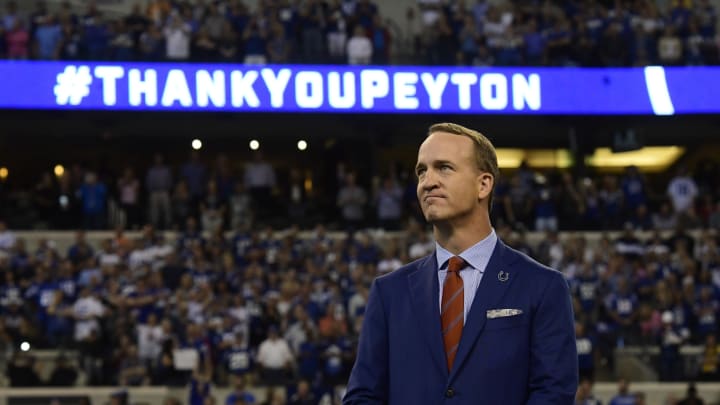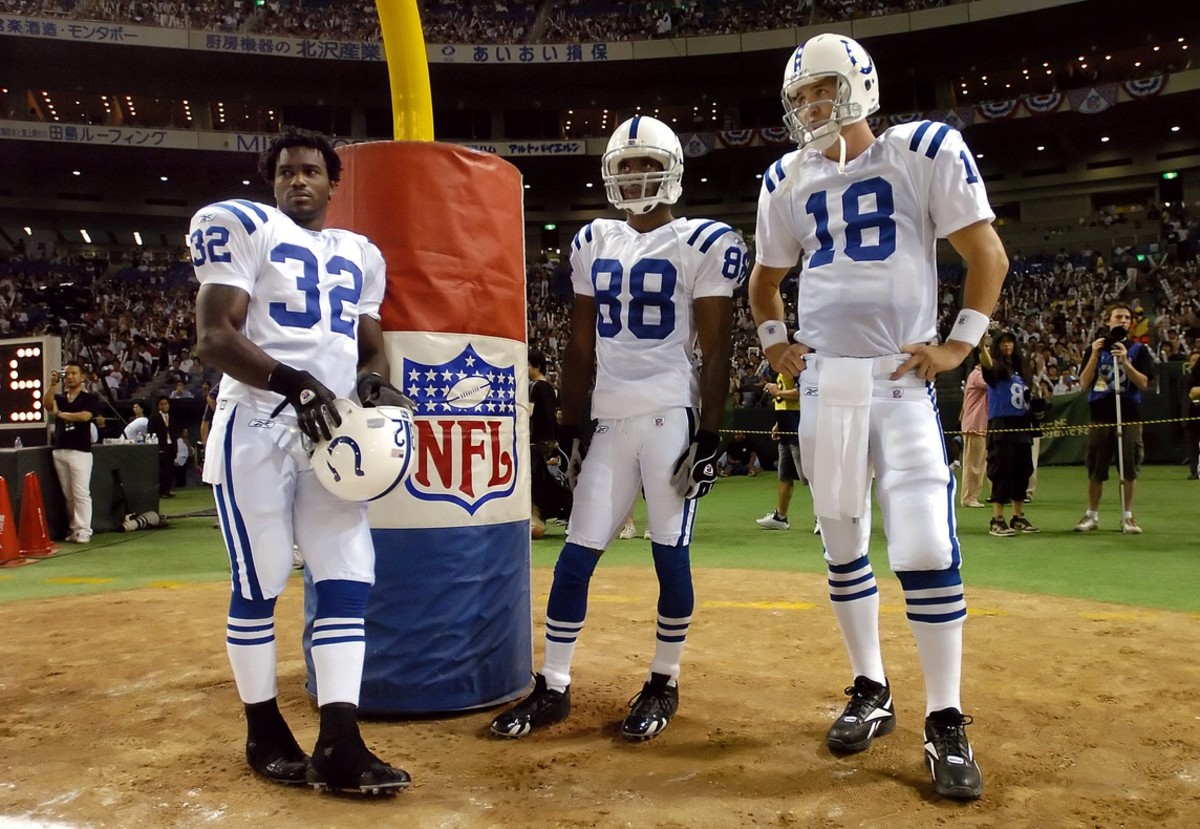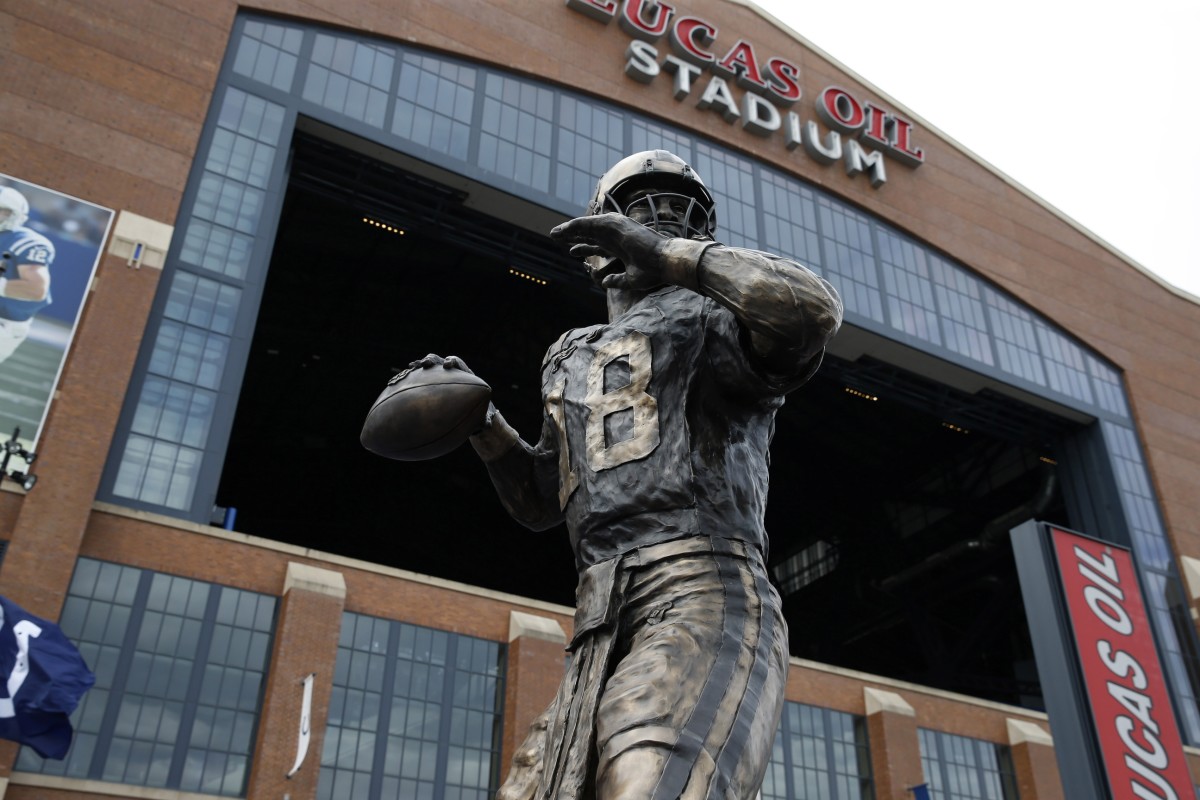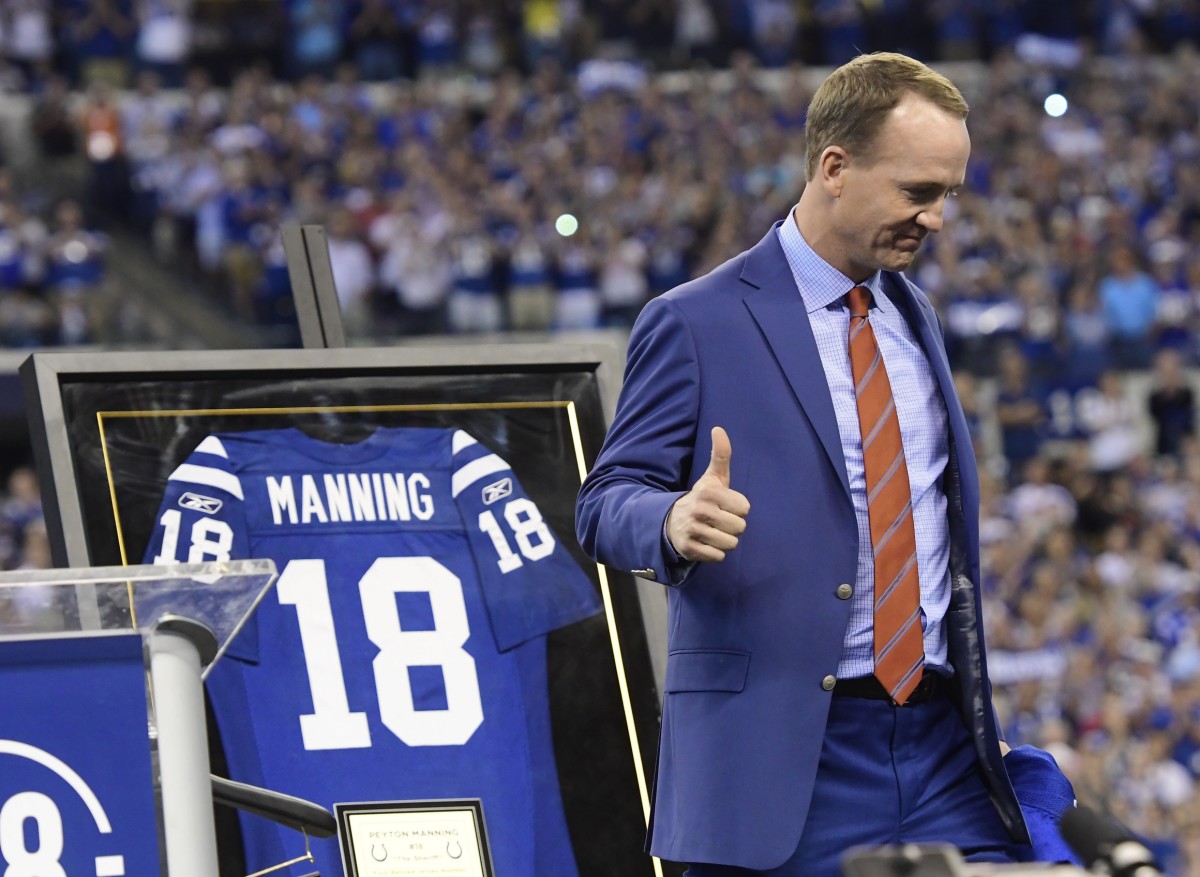Sharing Colts Stories About Peyton Manning as he's Voted Into Hall of Fame

INDIANAPOLIS — The first time I saw Peyton Manning was after a game during his rookie year in 1998.
The Indianapolis Colts had lost again. And the new franchise quarterback didn't stomach defeat well.
In more than two decades since that moment, I’ve never seen a player sit next to his locker, still in uniform, for as long as Manning did after that loss. He hated losing. That much couldn’t have been more obvious, as far as memorable first impressions go.
In going through the mental Rolodex of Manning memories in anticipation of Saturday's announcement that No. 18 had been bestowed the inevitable honor of being voted into the Pro Football Hall of Fame, you start at the beginning.
There was Manning, just sitting there.
That’s why kicker Mike Vanderjagt got it wrong when questioning the fire in Manning and Tony Dungy after a 2003 playoff loss. Manning wasn't a rah-rah guy, but anyone questioning the quarterback’s competitive desire was profoundly ignorant. Or perhaps Manning was right. Maybe Vanderjagt did just get “liquored up” for that Canadian TV rant.

That leads to another memory. Manning mastered the media. I’ve never seen an athlete in any sport who understood how the interview game works like him.
In my first full-time year on the beat in 2001, I wrote a story about free-agent additions that didn’t pan out. It wasn’t much of a story, just an easy accounting of obvious disappointments, basically a filler piece on a slow day.
Manning walked up in the locker room that day and told me I forget to mention a couple of other players. He said them by name. I can’t remember who he said. Just what he said.
A colleague reiterated the message from the moment: “He reads everything.”
Because he let his play do the talking, a story about trash-talking was rather amusing. In asking Colts players about who liked to say what during games, offensive guard Adam Meadows laughed about the idea of Manning saying anything to opponents. That just wasn’t Manning’s style.
But there was a game when a defensive end got near Manning on an early play and informed the quarterback that he was going to be in his face all day. That didn’t turn out to be the case. Near the end of the Colts rout, the defender was near Manning after another play. And Manning couldn't resist.
As Meadows recalled, Manning looked at the pass rusher and said rather simply, “You’re not good.”

As much as Manning was one of the greatest passers in NFL history, he wasn't known for being mobile. So he took pride in the longest rush of his career. It was at Buffalo in 2001, a bootleg around left end for a 33-yard touchdown.
What stood out about the play is Manning didn’t tell anyone he was keeping it. The line blocked right. Edgerrin James ran toward that side. And Manning fooled everyone including his teammates with the fake handoff.
I asked afterward if he had perfected that fake after watching Boomer Esiason, who was known at the time for his slick ball-handling.
“No, that was an 'Archie Manning Special,'” Manning said of his father.
Through the years, there weren’t many one-on-one conversations because Manning was always in demand and didn’t have the time. There were a couple of phone conversations.
He called from the Pro Bowl to promote a PeyBack Foundation event where someone was being honored. I teased him about having a blocked caller ID. After the Colts released him, the blocked caller ID showed up on my cellular again. Manning was calling reporters to thank them for their work during his time with the Colts.
It was one more reminder that Manning knew how the media worked. I expressed my appreciation for the privilege to cover him.

At some point during his Colts tenure, I was surprised to be granted a one-on-one chat in the locker room after media availability. Those requests have to be pre-approved, so it was surprising that he agreed.
The focus of the story was to share something about Manning that nobody knew, which seemed like an impossible task, considering he wasn’t much for sharing any personal details.
But when I asked him if he had any keepsakes from his career, Manning mentioned his affinity for having photos taken with people he considered important during his NFL journey. I didn’t get to see the photo album, but he described how the photos meant so much to him. It made for a great story.
Manning always was that. And so much more.

